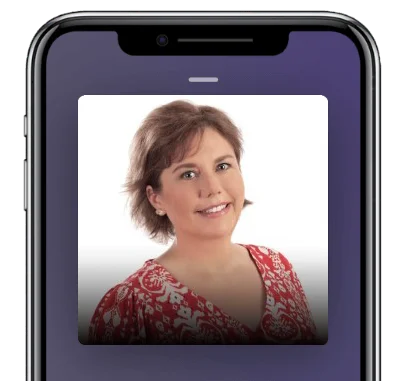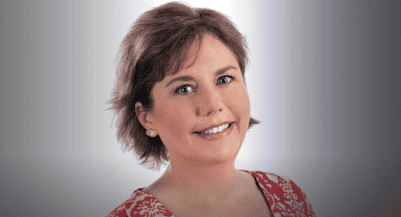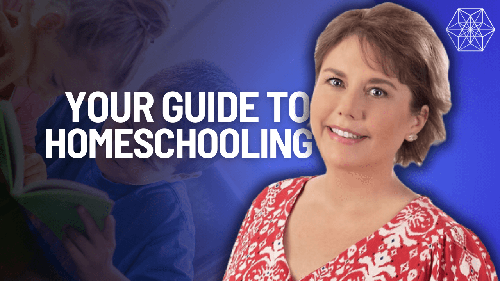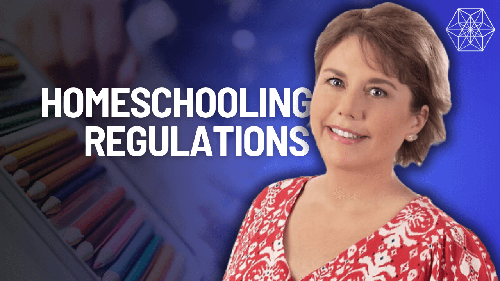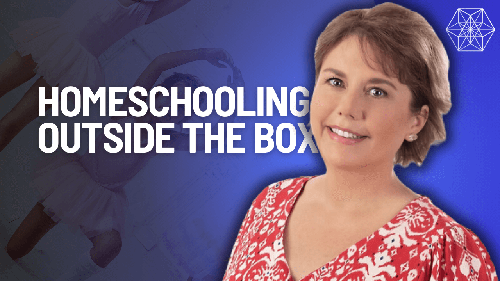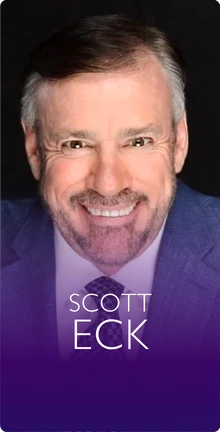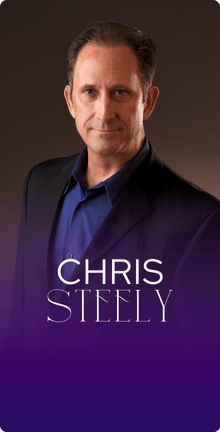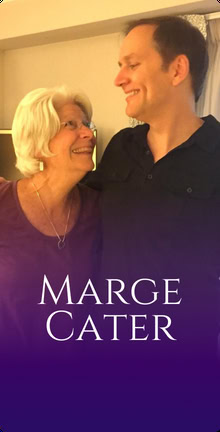In this Episode
- [02:21]Mary Resenbeck explains the benefits of homeschooling your children. She also mentions the advantage of engaging children in enrichment activities.
- [08:43]Mary talks about dyslexia and dysgraphia.
- [13:44]What are the creative aspects of unschooling, and how does it work for your child?
- [17:15]Mary discusses the legal requirements for homeschooling.
- [23:17]Mary describes the education revolution happening nowadays. She also emphasizes the need for families to take responsibility for their children’s education.
- [28:10]Mary differentiates homeschooling from crisis schooling and discusses how enrichment centers act as a community.
- [34:55]Mary shares her teaching style involving theater.
- [46:58]The difference between Waldorf schooling from Montessori schooling.
- [50:19]How can we individualize and personalize our children’s education through homeschooling?
- [56:48]How can we impart life skills through homeschooling?
Mary, it’s so great to have you on the show.
Thank you. Thank you so much for having me. I appreciate it.
I’m excited to talk about homeschooling and children’s education. I have a three-year-old that just turned three last month. This is very pertinent for me, and I’m sure, for many listeners who have young or school-aged children. If you could encapsulate the benefits of homeschooling or at least incorporate some homeschool curriculum, even if they do attend a regular school, what would those be?
My basis is enrichment. I do what’s called academic-based musicals. I enjoy doing that as a teacher and also as a homeschool mom. I recommend it on all levels of learning. If you want to homeschool, you can find an enrichment center to fill in the blanks you can’t teach at home.
There are professional teachers at enrichment centers, and you can do it in an “ala carte” way, where you can take those classes that you’re looking for, pick and choose, and individualize and personalize your child’s education. Or suppose you have a child in a private school or a different type of school, like Waldorf or a Montessori, but you’re still looking for those enrichment courses. In that case, there are all kinds of after-school enrichment centers as well that can’t benefit from your curriculum and what you’re looking for for your child’s schedule.
Why did you choose homeschooling instead of sending your kids to a Montessori, Waldorf, or magnet school?
It all began through Montessori. My children have invisible learning differences. They are “gifted intellectually,” so they are called. Now they have a term for it, twice exceptional. They were gifted, but yet they were severely dyslexic, and they had dysgraphia and certain things in a traditional setting that wasn’t working in a traditional classroom.
I had an unconventional way of getting into teaching. First, I went and actually applied as the theater teacher because I had many years of theater experience, and then ended up being also a teacher’s aide, which rolled into being a Montessori full-time teacher for six to nine-year-olds.
Their depression rates rose, and I had to act fast. So I decided to do homeschooling.
I followed my children to school, and everything went well. It was a performing arts-based school, and both my children are gifted in those areas. So everything was going very well until they hit middle and high school. That’s when their IEPs, which is called Individualized Education Program, children will get different spectrums of learning when they might be having difficulties in different areas. Because they were twice exceptional, a lot of times, the teachers thought they were faking it, or they weren’t trying hard enough.
Adhering to the accommodations and modifications in the classroom is legally required. That’s frustrating alone, but with it affecting their academics, it also affected their peer group. They start losing friends because when your teachers are saying certain things in the classroom, it’s natural that your friend group will adhere to what the teacher is saying. Their depression rates rose, and I had to act fast. So I decided to kind of launch into homeschooling.
I was also newly pregnant with my third child and felt it was a great way to enter that world. I found a great camaraderie, and a community, and it was a wonderful avenue to highlight my children’s passions, gifts, and talents, focus on life skills, and get them to where they need to be as productive adults.
They did it and experienced the same things that traditional learners do. They had a prom. They went to Disneyland, and they had grad night. They had full graduation. You can homeschool and have all those bells and whistles. So when I realized you could personalize and individualize a child’s education, I launched into it with both feet.
It sounds like a ton of work, though. Did you have to quit your job, or is this a full-time thing, and you have to give up on your career or business to pull this off?
Luckily, it slipped into parents contacting me and asking how I could do that for their children. They told me, ‘Look, I’m working, I can’t do this.’ I fell in my lap being an educational manager. That’s how I was able to still work but also be able to provide a complete homeschooling environment for children.
Many times, parents are intimidated about teaching. You do not have to stop your career.
That’s how I did it. But no, you don’t have to quit your job. You do not have to stop all your career because many times, parents are intimidated about teaching certain subjects anyway. They have to make money to feed and pay the bills for their family.
That’s where I guide them. I guide them and let them know that ‘look, you have enrichment centers where they have to drop off programs, where they mimic a traditional brick and mortar, but you can make sure that those classes are adhering to what your expectation is for your child.’ There are tutors and online courses. The age of your child also depends on what you’re looking for in your child and the direction you’re looking for them to go.
Are you familiar with Acton Academy? I recently heard that they’re really good.
Yes, I have. I’ve looked into Acton Academy myself. That is a school where you’re going to build it together as a community. It acts a lot like an enrichment center, but it’s a school. It’s like a private school if I’m understanding correctly.
Got it. You mentioned dyslexia and dysgraphia. What is dysgraphia? I know dyslexia is where it scrambles the way that you see words. It’s almost like seeing them back or something like that.
That’s a misconception. It’s a spectrum with dyslexia. It’s a comprehension issue, where you’re reading it but not comprehending what it’s saying. You might have to hear it auditory. Somebody might have to read it to you to retain the information.
Yes, there are levels of you see reversals, but that’s just a very small percentage of what dyslexia is. It’s a big monster. Dysgraphia affects fine motor skills. For example, it affects your ability to grasp the pencil correctly.
For example, my son could lecture, tell stories, and carry on, and teachers would be impressed with him. Then they would have him sit down and maybe write a passage from the board, and he physically couldn’t do it. They just said, “You’re lazy, you’re not doing it,” and then he finally was able to articulate, like, “I feel sick.” He can’t grasp the pencil well enough to make the formations of the letters so you can even read it properly.
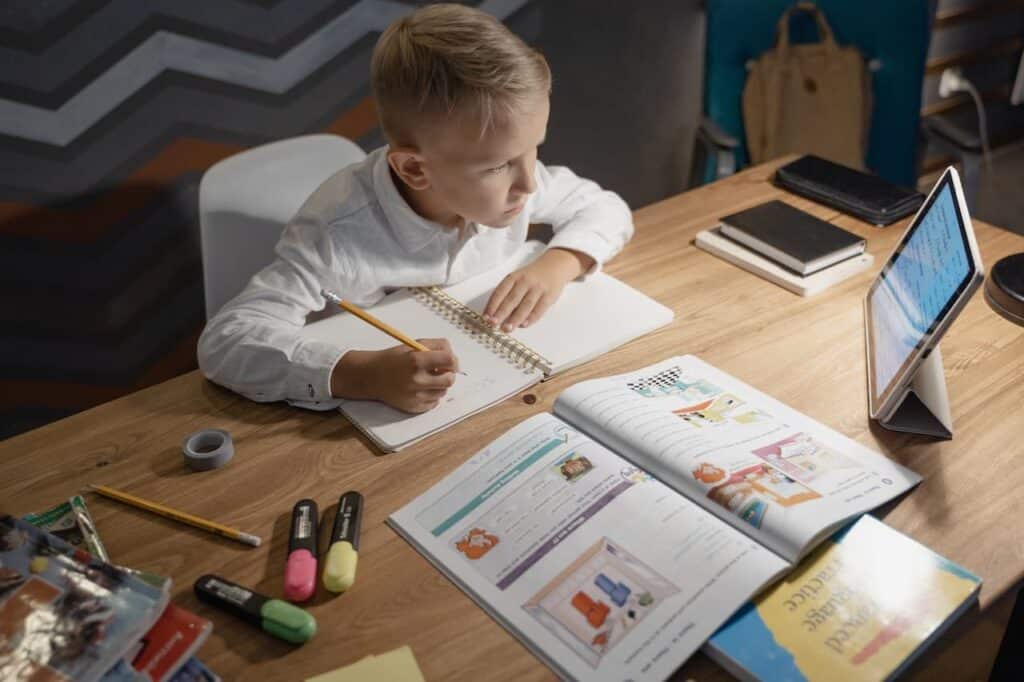
It’s very sad, but at the same time, it’s an exciting time to be dyslexic and dysgraphic because you now have all of this technology and the tools you have from technology to be able to write whatever because you talk at types. You have other ways to scribe and retain information, like audio books and things like that.
Those things that were rejected in traditional learning for a long time are now being more accepted, but at the same time, sometimes, with traditional learning, they rely on it too much that they’re not engaging enough with the child. You get the best of both worlds when you’re homeschooling.
Could you compare and contrast the options for our listener, Waldorf, Montessori, traditional schooling, magnet schools, homeschooling, unschooling? There are a lot of options out there. Some of our listeners they’re not going to be familiar even with the term Waldorf or Steiner. Could we start there?
Sure. I’ll start with where I began, which was Montessori. Maria Montessori is the one who began the program. She has a philosophy that children learn intrinsically. They want to learn everyday life skills and do it in a fun, playful manner and not have a child sit still and be forced to learn one subject that they may not be ready to learn.
It’s an exciting time to be dyslexic and dysgraphic because you now have all of this technology and the tools.
They learn at their own pace, so you allow the child to look at the materials, which are always presented beautifully. They are very visually stimulating and really go from those little skills, even sweeping, tying your shoes, buckling, and then going further into research and learning how to find that research, and guiding them and being the facilitator to learning and, of course, then those traditional aspects will come in like the writing and things like that. All of that is done at the child’s pace and level.
Montessori believes in multi-age classrooms because they believe the little ones can learn from the older ones. It’s a beautiful translation when you see it inside a classroom.
Waldorf sometimes gets confused with Montessori because they have the same philosophy that every child goes at their own pace, and every child needs to learn intrinsically, want to learn, and enjoy learning. But they have a really creative spin, where they base it off of fairy tales. It’s very interesting.
Instead of instructional books, children create their own books like Montessori but on a bigger level, where they are doing all the art. They are doing all the research. At the end, they have a complete book of everything that they’ve learned and what they haven’t learned, both Montessori and Waldorf, rollover into the next year. In other words, you’re not like, ‘oh, you’re far behind, you have to stay back.’ No, you can roll over and be at the same pace.
What is interesting is it all has a creative aspect. “Unschooling” is how I went with my high school children because I had to deschool them. My daughter was having panic attacks about tests and that she had to reach this number of words in her paragraph that she was supposed to do or her paper that she was supposed to do. It’s just becoming some big stressed out thing. Because they weren’t adhering to any of her accommodations, it just wasn’t working, but she had been brainwashed into this as ‘the only way that I can learn.’
My son was like, ‘well, if I don’t focus on this and get this at an A level, then I fail and can’t move forward.’ That takes all of that pressure away.
Unschooling is not about letting your kids sit and watch video games all day. Unschooling isn’t taking them out of school and having them participate in no learning at all. It’s giving them the gift of saying, ‘what is your talent? What is it that you want to master?’ And then you take that gift in that talent, that passion because you’ll find that every child does have one, it’s just their light was diminished at some point in time.
You reignite that flame and then that child can go and say, ‘okay, this is what I’m really into. I’m really into mechanics.’ You can go and you can start now. You’re going to get a car, you’re going to start working on this car, you’re going to rebuild this car. Now we’re going to talk about math through this, now we’re going to talk about blueprints or how you build something. You just build from there. While you’re doing that, you’re doing life skills as well.
Everybody wants to have a cultural aspect of different people and how they live their lives.
Unschooling gets a real bad rap because of what the term is. But really, it’s about learning about what you are good at and getting better at it so you can make a future with it. That is really what unschooling is about.
Then there’s world schooling, which I love. That’s traveling with your kids. Everybody wants to have a cultural aspect of different people and how they live their lives. To do that, it’s important not only to look at a book and stare at a picture or even look online and try to experience it, maybe through a video or a movie. Go there, experience it, taste the food, try the food, go to the festivals, make sure that your game plan is to ingratiate yourself in the community, and make sure that you’re you’re listening to the language and your children are enraptured with that.
I could do that with my youngest for her first few years before Covid hit. She traveled Europe. She was very young and we wondered, ‘oh, boy, is she ever going to even remember any of this stuff?’ And she does. She’ll come back, she’s so excited about it, she can’t wait to travel more. We call her “little world traveler bug.” Homeschooling allows you to do that. You can do that on so many different levels.
What about the legal requirements? Do you get in trouble for not following the traditional framework that the government hands down? Are you having to periodically submit evidence that they’re learning a curriculum, or are you put in jail, or are your kids taken away? Tell us more about that.
That’s an excellent question, I get that a lot. It is legal to homeschool your child in all 50 states. That is a fact. Now, each state, as you know, the United States is, has their certain laws with homeschooling. I live in California. For me, believe it or not, homeschooling is pretty liberal right now.
You can choose many different directions to go. For example, if you would like more guidance and you would like what’s called a homeschool teacher, you could choose maybe charter schools. Or if you have a child that has special needs, and you’re looking for those specialized services that you can’t afford, you would want to go with a charter school.
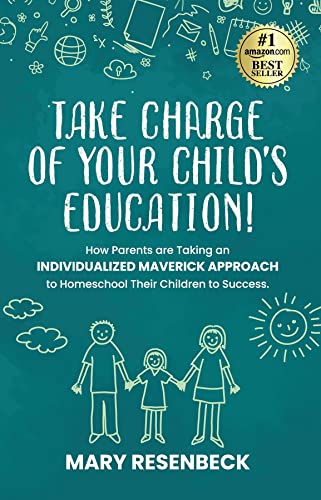
What a charter school is, it’s aligned with the district. Some have a little bit different flavor from the district. That was the whole point, but you will get funds through the district. The funds support the enrichment programs, any kind of IEP needs that you may have, and you will have support with a homeschool teacher that will come. Usually, you meet with them once or twice a month. It could be online or in person.
They just review things with you. They may speak with your child. The requirements from what I remember when I was doing this with my child was I believe you had to have one sample, which was one page for each core subject you were doing. You will get tested through a charter school. At least, recently, we have been told that because you could opt out of it at one point in time, but they’re starting to get a little bit harder-nosed about it, because the districts are unhappy about the charters taking district funds.
We’re in a battle right now, and parents are getting a little upset because they’re tightening the noose a little bit. But I always tell people that if you’d like to switch over to a PSA, and that’s what I do, it’s a Private School Affidavit, you can also do it just yourself. You can be the school. You are the teacher, the principal, and all of that. Many times that’s intimidating for parents, like what are you talking about? That’s it? I do this affidavit and I’m stuck?
Some parents are pros and they’re like, yeah, that sounds like it’s perfect for me. But if you want to do a PSA and not be under a district, you can join umbrella schools, which is beautiful. Basically an umbrella school ties into your PSA.
I do one with my daughter. It’s a private homeschool umbrella school. I have no district oversight, but they handle the attendance for me. I do the grades and stuff, but they handle all the transcripts. They professionally handle all of that. They have counselors on board for high school, SATs, ACTs. Is that a requirement? No, but they have those services there.
They have enrichments like drama, sports arts. They also have drop off programs, where you can drop your child off several days a week for half a day or full day. It depends on the program and you do pay a minimal fee. For us, it’s $68 a month, but I go basic. After all, I don’t do all of the extra bells and whistles that they offer, because I choose to do an enrichment center. I have a whole different thing going on, but I still utilize the attendance, the transcripts, and the report cards because I don’t want to deal with all of them. Not the fact that I’m entering the grades, I just don’t want to do all of IT things that would come with all of that.
You can also do it just yourself. You can be the school.
There’s another way you can do it. You can PSA and then join co-op groups in your neighborhood; these mothers come together. These mothers come together and create a school-like setting, but they’re bringing their expertise to certain things. For example, if somebody’s father is into finance, he will do the stock market in class, so situations like that and life skills are huge.
There’s a lot of different ways that you can definitely homeschool without having tremendous oversight. Like I said, every state is different. I’m talking about California.
What you would do if you were worried about that and you wanted to venture out and find out what homeschooling was all about, you would call someone like me, a homeschool consultant. Then you would get the information you need and your state to do it legally and properly, because we want to make sure that families are doing it right and that they’re not nervous or scared. We want parents to take charge of their child’s education because it’s important. After all, you’re the parent and they’re your children. It’s something that we want to take total responsibility for.
You mentioned the umbrella school handles the attendance for you. I know there’s this term truancy. If a kid is truant, then they can get in big trouble. I don’t know what happens to them, but it feels like a big deal.
It’s scary. It can be a big deal. It really can. Really and truly, when you’re doing an umbrella school, when you homeschool, there are no sick days. You’re at school when you’re at home. That’s why they let you determine your attendance with your child. Some people take out all of their Thanksgiving, some people take out their Christmas vacations, or something like that.
I, even if my kid was sick, even if we had to go somewhere, let’s say it was a trip that we had to do maybe for a family funeral or something, we’re still going to hit the museums. We will still find that time to be able to school our child. So in that aspect, you won’t find truancy if you’re doing it through a private school affidavit with an umbrella school. That same goes if you’re not with an umbrella school or a charter school, because even though they’re checking on you, you’re still homeschooling.
If you choose to homeschool, and do not know the rules behind it, that could be a scary situation.
There is no brick and mortar building that somebody is checking you off and saying, ‘you were 15 minutes late, well, we banish you for recess.’ That kind of thing does not happen thankfully. Now, if you choose to homeschool, and not know the rules behind it, and you just drop your kid out of school and try to manage it, that could be a scary situation, especially depending on your state. They can bang on the door and act like you are truant, take you to court, and carry on with nonsense.
What you can do if you go PSA is if they knock on the door, because sometimes there were a few times at Covid when parents started removing the kids from the district here in California. The districts didn’t understand homeschooling or the rules to homeschooling, and many of these schools fought back by intimidating letters to these parents and stating that if you go through it, then you could be arrested, they were going to take you to court. We could take your kids away from you.
There is a place that I expect everybody who homeschools no matter what religion or what background you have, it’s HSLDA. It is a basic homeschool lawyer base. They took it to them and said, ‘look at this letter I just got.’ They just slammed them down and said they didn’t know the rules. They appropriately legally gave these districts the rules of homeschooling, and then they retracted all of the letters, and there was a great big apology about that. But they were terrified and still are bothered because the children are leaving and surprisingly, so are the teachers.
The teachers are not surprisingly, but the teachers are also leaving. There’s a great exodus happening right now. I feel like an education revolution is happening, and parents are really at the head of it, and they should be.
What’s so interesting, though, is that teachers and colleagues are finding that homeschooling is also a great business move. Parents understand that, ‘hey, we can make this a business move as well with our expertise in what we offer other homeschooling families. You don’t have to quit your job. But if you don’t have one in general and want to create an income, you have that ability’. There is so much behind this homeschooling movement.
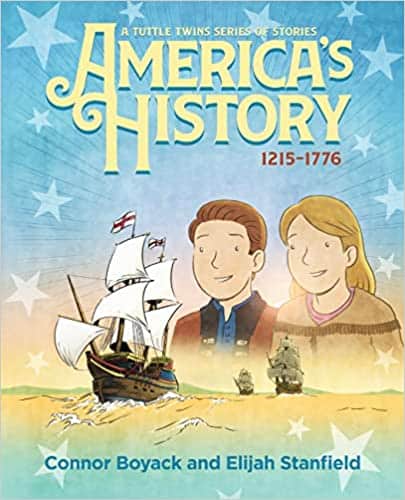
That’s cool. I heard the term magnet school many times and didn’t know what it was. I’ve heard the term charter school before, I didn’t know the definition of that either. Are they different, charter school and magnet school? Are they synonymous with each other? What’s up with that?
Charter schools can also be brick and mortar. They could be a creative art school. A charter school is trying to go outside the box and do something deep in science and math, like a deep science math school, a language immersion school, or something like that. What I was talking about when I referenced charter, I’m referencing charter homeschool. This is another little department of the charters they’ve taken as homeschooling.
Magnet schools are, again, very similar in that it’s off the beaten path, but it’s still district-based in funding and everything. You’re getting a more creative spiel, you’re getting a more progressive way of going about learning. You may be having Montessori magnet school, you may have a Waldorf magnet school. Those are kind of off the beaten path.
When I’m talking about charters, I’m talking about the homeschool charter schools. When I’m talking about co-ops and different homeschool schools that are also technically, they say, not magnet, micro schools. There’s this homeschooling thing that’s happening right now called micro schools. It’s the communities again coming together, maybe finding a YMCA or a building that they can rent, come together, and create that learning environment and that learning journey that they’re looking for.
This is so much more complicated than I thought.
It’s really interesting, because what used to be in the basement, you pictured a mother and the swinging light bulb going back and forth. The child doesn’t get to go outside. They’re peeking outside. They can’t see other children. That may happen, but that may happen in anybody’s home, even if they go to a public school and they’re being abused at school and then sent off to a place for a couple hours a day.
This is not what homeschooling is about. What happened during the pandemic was what I “call crisis schooling.” The districts had no idea what homeschooling was so kids were forced to sit in a chair, stare at a screen, and magically learn. What happened was, we saw that special needs children, in particular, fell through the cracks. All spectrums of learners were getting depressed, families were frustrated, and they were also finding out, is this what my kid is doing because now it was brought into the home via computer and going, this isn’t learning from my kid, my kids half asleep, my kid isn’t engaged, my kid doesn’t care?
Focus on your children’s passions and strengths and the rest will naturally fall into place. The key is to allow your children to explore what they love. Share on XThat forced parents to find a new revolutionary way of educating, and they stumbled upon homeschooling. They realized that homeschooling is not what the pandemic was, which was crisis schooling. They found that, wow, I can enrich my child in such a way that they are excited about their academics, education, and further learning. That’s why they pulled their kids out for homeschooling.
I know that there’s some confusion with that. They’re like, well, you hated it so much, why would you rip the kid out to go do it because they didn’t realize, that wasn’t homeschooling? That has nothing to do with homeschooling, sitting in front of a screen all day being lectured to. Even being lectured to or having some video thrown at them is not schooling and that’s not learning.
Let’s talk about that for a moment.
It is complicated, but it’s a journey.
Let’s talk about this idea of putting a kid in front of a screen all day and thinking that’s learning. There’s a thing called Zoom fatigue. It happens not just to kids, it happens to adults too. If you’re in meetings all day long on Zoom, it’s bad for your eyesight, it’s bad for your body, for your physical, exercising, and all that sedentary time. This will lead to things like high blood pressure, obesity, et cetera.
What sort of things can our parents do that are listening to ensure that kids that are learning through computers, whether it’s Zoom or some other more gamified platform where they’re learning online, that it’s working and not causing more problems than good?
Definitely. Also, what always comes up with homeschooling is that my kid isn’t socialized, they’re not active, or they’re unable to build their bodies healthily. We need activity and we need socialization.
I prefer a hybrid type of situation. I know that online learning is terrific. I love it, but I don’t want to be in front of the screen all day long like anybody else. So really and truly, when talking about different enrichment centers, these centers act as a community.
We need activity, and we need socialization.
An example would be my daughter takes dance, she’s taking Kung Fu, she takes PE courses, there is a tumbling class. So you can look at that physical education and socialization and be able to, like I said, ala carte it to your schedule that’s personalized, individualized to your child, and make sure that their brain is not just being fried on the computer, that it needs that other outside stimulation and in-person conversation with teachers and other students of their peers.
You mentioned dance, Kung Fu, and so forth. It didn’t occur to me that a dance studio, some sort of fitness studio, or something like that, a martial arts studio, would be considered part of a curriculum for homeschooling. After you mentioned it, it makes total sense.
When you’re talking about enrichment centers at the beginning of this conversation, I was envisioning one of these after-school teaching type centers, where you drop the kid off and then they’re learning whatever other curriculum, but it’s all STEM-based usually or it’s things that they might get additional tutoring on from things they learned at school. But this is a different thing altogether.
This is much different. This is a theater program, this is music lessons. You can take guitar, ukulele, and voice lessons. As for me, I’m an academic-based musical teacher at the enrichment center that I’m talking about right now. I do core subjects. But basically, what I do is I’ll incorporate an entire full show with costumes and backdrops, and they learn it through music, and then we do hands-on activities as well. So you can incorporate the core.
What’s so neat is with enrichment centers. I know what you’re saying because you’re thinking about after-school-based enrichment centers we’ve had for so long. This is very different. This is a homeschooling enrichment center, where you’re trying to be there for the whole child but also family centered. It’s really about what the parents need for their children as well as what the children need. It’s remarkable.
My daughter is doing Willy Wonka right now. She’s very excited. She got a starring role for being in third grade, a little solo and a dance. It’s a world where this new generation doesn’t see any difference, because this is what they’ve been doing since the pandemic.
I don’t think that they’d like it any other way. These are not traditional kids that want to sit and stare at even a teacher in front of a classroom. They want to be engaged, they want to be moving, they want to collaborate, and they want socialization. That whole misnomer that your child is unsocialized is incorrect if you do it properly. Anybody can be trapped in the house if you choose to be.
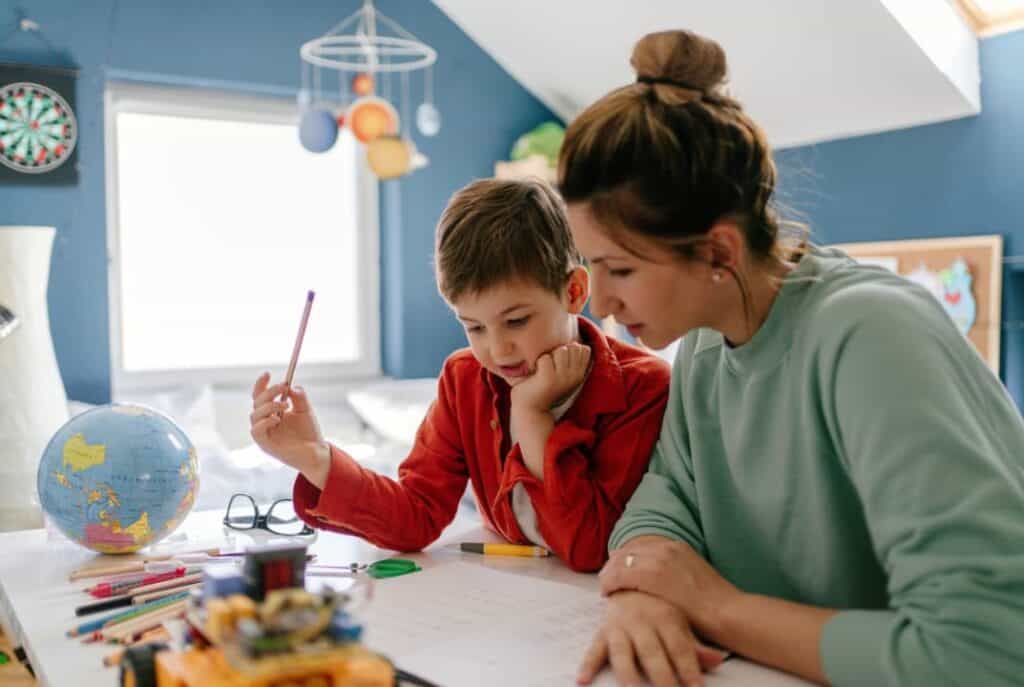
I’m especially curious to hear about the theater angle. If you’re teaching history or science in a theater-type environment, this reminds me of a previous guest. I met him at a mastermind and he gave a presentation that was phenomenal. His name is Scott Eck. I mentioned him to you on a previous call.
He has this thing called Leadership Theater. He goes into corporations, some of the largest companies in the world. He will teach the executive team these things around leadership, team building, just innovation, all sorts of things, using stories from the past that he and his team reenact.
I would love to hear how you’re doing it so that you’re teaching your kids and maybe other kids in the cohort that you might have formed, these different principles of entrepreneurship, leadership, or what have you, in a theater environment.
For me, an example would be if a parent was looking for a government or history class, I would do maybe 13 colonies. It is an academic based comedy, and I always love laughter in a classroom because I feel that it opens up the brain to learning. So it’s an academic-based comedy and some musicals as well. They will learn all about the 13 colonies, the Europeans that came in, about the Native Americans, the formation of our government. George Washington is the narrator of the entire play.
With that, I’ll have a multi-age group of kids, all at different learning paces. What’s so nice about this, the songs, they translate for all spectrums of learning. We’re done with that. The songs are now embedded in their brain, and then the act of even using costumes and props brings the class together.
Now they’re not worried about Johnny not reading as well as Sam or Sally having better writing skills than Julie. Now they’re coming together to bring a production together while learning through the dialog, the principles of what the core subject is, then what I have them do is I have them come and do hands-on projects. They get to pick an outstanding person of that period.
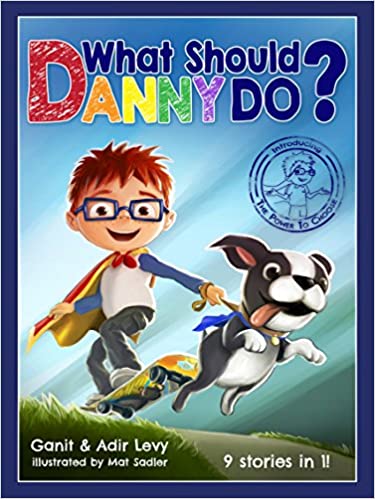
If someone picks Martha Washington, they will now research her, and then they will bring back a creative way of presenting that. That goes with each piece of learning. One person may have just a one-page paper about her and a picture, or another person may go all out and do an interview or something like that, or do a movie about it. It aligns all spectrums of learning.
When they walk away, they have those songs embedded in their brain forever and always, even the adults. Even the poor parents are now always with me. That’s a good thing.
I’ve had high school students call me and go, “Thank you so much. I forgot all about that, it came up on the test. I had all the answers.” That alone is remarkable, and it works with the whole family unit in the classroom and the family at home. It really transitions into a great academic experience.
When they roll over to the next topic of maybe 13 colonies, they can all roll over at their pace. The gifted children can go roll on, the kids that may have had more difficulty can either repeat it or then move forward at a slower pace. It isn’t that children are picked out because of whatever label that they’ve been given by the educational establishment, we all just work together and learn.
That’s awesome. By the way, I looked it up and it’s Sir Ernest Shackleton. It’s the trans-Arctic expedition that Scott created a whole play and program around called the Shackleton Experience. Anyway, it’s super cool. They even have a website for it, shackletonleadership.com. What I was going to mention is there’s a whole book series of The Tuttle twins, over 3 million.
Yes, I know. I love the Tuttle Twins.
Over 3.5 million copies sold, I think. They’re a client of mine. I’m very familiar with them. I also read some of their books to my three-year-old. Some are more for older kids, but it’s amazing.
My nine-year-old loves them.
The newest book that just came out is called America’s History. It’s a huge history book. I remember trying to read some of it to little David and it’s a little too old for him right now.
I was reading him about this story of the Tuttle Twins’ neighbor setting up a whole obstacle course in the backyard. It was all based on the shot heard around the world when the regulars, the redcoats, were trying to capture some of the revolutionaries in Lexington. It was Lexington and Concord, which all tied into the obstacle course.
Isn’t that fun? What a great way.
It’s so clever. I’m just curious if there’s stuff like that already in a set of curricula that parents can just buy and download, and now they don’t have to come up with a whole play from scratch.
Yes. Absolutely. I write a lot of my plays. That’s what I do, but I love to pull from Bad Wolf Press, they are phenomenal. Those songs, they stay forever. They have wonderful catchy songs, and it’s all based on curriculum. They do life skills, they do history, they do science, they do math, they do language arts.
One of my favorites is Alice’s Adventures with Idioms. I’m currently actually doing that right now. The whole show is about Alice and her friends experiencing idioms in Wonderland. What’s so fun about it is the kids have to, when they say hands down, they have to slap their hands down. Now they’re getting a visual of what that literally means and what it means. It’s a lot of fun like raining cats and dogs, they understand it.
That’s a hard concept sometimes for young kids because they take things very literally. We’re doing that play through Bad Wolf Press currently right now. That rolls into more language arts, then we go into grammar, and then I utilize a lot of Montessori throughout the year.
That sounds amazing. That’s cool. I should introduce you, by the way, to Connor, the author of The Tuttle Twins series.
I would be honored. It’d be very interesting.
Some really interesting synergies could happen out of that because there’s a TV show, a cartoon now for the Tuttle Twins.
Cool, I didn’t know that.
Homeschooling still requires active learning and participation, but it creates freedom for your children to discover their passions and talents, and encourages their inner light to shine. Share on XThat’s a sister company to the main Tuttle Twins company. Anyway, it’s fascinating what they’re up to. I think the whole theater angle is brilliant. I’ll introduce you. Do you have a few more minutes?
I sure do.
Okay, awesome. I’d love to know if you can, let’s say, hypothetically walk into a child’s bedroom and see just based on how the room is set up that, ‘oh, this is a Waldorf kid, this is a Montessori kid, this is an unschooled kid, et cetera.’ Is that obvious?
For example, I know there are “Montessori beds” and they’re very close to the floor, et cetera. The kid had a Montessori bed like, ‘oh, there’s a Montessori kid’ or with Waldorf, because my daughters who are now grown, I did send them to Waldorf schools when they were young, Waldorf kindergarten. Some of them went to Waldorf High School in Christchurch, New Zealand, where we lived at the time. It’s what they call Steiner Schools. They don’t refer to it as Waldorf there.
Right.
I know with Waldorf schooling, they’re big into imagination and not having too much detail on things like dolls. They’ll have no face on the doll. It’ll just be a blank face. That inspires the child to imagine what these things might be. What are the tip-offs for you if you were to see a kid’s home that would be a Waldorf home, Montessori home, et cetera?
For me, a Montessori has specific materials that you utilize. These are wooden materials. They’re very neutral based on color. They invite the child to come and play. They have a very playful-like look, yet they are academic in how they’re structured.
Unschooling just looks like a house that is lived in, but also might have a child building a computer, building a vehicle, or painting.
Each child, when they begin to pull out for preschool, they’re going to pull out a tray, and there’s going to be a jar of beans, there’s going to be a couple of cups, and then there’ll be some water, so the child is encouraged to do all of the pouring and then separating and sorting. You get a little bit older, you’re going to see the checkerboard activity for math skills and that helps with place value. It looks like a big checkerboard. Everything is wood, nothing is plastic.
Everything is neutral, so bright colors. The colors are basic like reds or the primary colors. They stick with the primary colors when it’s not a wood neutral base, so I would know instantly. You have low shelving. Low shelving, the shelving is there for the child to be able to reach in. Nothing way up where they have to ask. It has to be eye level for them to be enticed and intrinsically wanting to participate with.
With a Waldorf, you’ll see, like you said, a lot of imagination. They love fairy tales. Fairy tales are awesome. I am a fairy tale queen. That is something that I really, really do love.
My daughter did a bit of Waldorf when we started with the charter school, the homeschooling charter school I did for a little bit. They had a Waldorf program, which I loved. This was before Covid. You’re going to go out and you’re going to do things in nature. You’re going to go and play with the sticks, you’re going to build a fort, and you’re going to be involved with the energy, the nature around you, and you’re encouraged to look, learn, find, and discover. A lot of that is what that’s about.
Like I said, Montessori and Waldorf are sometimes interchangeable because they have the same philosophy and the fact that they want the kid to learn, love learning, and intrinsically learn. But they’re different in the sense that Montessori is a little more structured in the sense that it’s more based on the academic spectrum. Waldorf, for instance, does not focus on reading until eight years old. Some big differences come about with the reading methodology and things like that.
Unschooling just looks like a house that is lived in, but also might have a child building a computer, building a vehicle, or painting. You might find a room filled with canvasses or clay activity. Or your child may be gone all the time, because they are in acting classes or they are in dance classes. That looks basically towards the child’s gifts, their passions, and what makes them excited to go further in their learning.
Worldschooling is about them taking that learning of the experience.
Worldschooling looks like a lot of luggage, plane tickets, and maybe an RV. It’s also about them taking that learning of the experience. You would see maybe notebooks of where they’ve been, see basic things like photography of different aspects of where they were, and then take that photography and have them do a paper about it and a research project about it.
What’s so neat is homeschooling and all of these different methods and techniques can be family centered. The child can find that journey of having it personalized and individualized. It looks different for each family, which is exciting to me. I love that.
All this can be augmented to your traditional schooling. If you’re sending your kid to public schools and that’s what you’re doing, and you’re not going to change that, these different modalities could be in addition where you add in some enrichment after school, you work in some museum trips over the weekends and things like that with specific goals in mind. Even just having eye-level shelves for your little kids and the bed down near the ground so it’s not hard for them to climb up, those are accessibility features that any parent could build into their child’s home.
All those things are about self-sufficiency and training the child to understand that they are capable. With that capability, comes strong self-esteem. It’s really interesting. Like you said, many times, you can find a Montessori or Waldorf in a public school district, maybe a charter or a magnet, but a lot of private schools are out there as well. That will provide you with a lot of this enrichment as well.
That’s where I began. I began at a Montessori school that was performing arts based. My children took violin, piano, theater, and art, which really did well for them because they were gifted in those things. What happened with the academic things and what we had to learn from scratch just wasn’t a big component because they were able to dive deep.
Look around. Sometimes when you say private school, you think it is a big expense. Sometimes you think of homeschool, you think of big expenses. Not all the time. Yes, you can do it and it will be expensive. Yes, some wealthy people throw money and do it that way, but there are other avenues that you can absolutely homeschool and still make money.
Homeschooling and its diverse methods and techniques offer a remarkable opportunity for family-centered education. This approach allows a child's learning journey to be tailored to their individual needs. Share on XYou can homeschool, keep your business, and have your child active in enrichment programs and socialize. You can have your kid go to a private school and still find different avenues for different grants and things that you can find that would even incorporate with that. If your kid has special needs, then you have even legal ways to differentiate your learning for your child.
With Steiner or Waldorf, I know that Rudolf Steiner was really into spiritual esotericism. He formed this whole spiritual movement called anthroposophy. Is that something that’s incorporated into Waldorf? Do you know anything about that whole movement?
That part is incorporated if you’re at a private Waldorf school. If you are going through a district, they chip away at that. That aspect gets kind of pushed to the side a little bit. That’s because of separation of church and state, everybody gets uptight about spirituality and all being mentioned sometimes, especially here in California. I don’t know maybe in other parts of the country, but I know this because my child did it for a year. So that aspect is there, but it’s not really talked about in depth, if that makes any sense.
All right, I’ve got a few more questions if you’ve got time.
I do. I have the time. I do.
I’d love to hear about the life skills aspect of this because there are things like Junior Achievement, which I did as a teenager. I thought it was a joke. How does arts and crafts relate to starting a business and having it be successful? I dropped out, I thought it was completely useless and ridiculous.

What life skills stand out for you that kids are learning through homeschooling or through extracurricular environments, enrichment centers, and parents going out of their way to teach stuff versus what they would normally learn in a traditional schooling environment like public schools? I’m thinking, for example, discernment, not necessarily believing everything the government tells you, understanding that laws aren’t necessarily just; they are only legal, so you don’t learn this stuff in school.
You don’t learn how to start a business. You don’t learn about how to balance a checkbook or maintain a credit history that allows you to buy a home and that sort of stuff. Can you give a few areas that stand out for you that were these life skills, homeschooling, and the non-traditional stuff go together well?
Great, yes. I’d like to begin basically with my own child, my son. When I decided that it was time to homeschool, he was in high school. Like I said, his self-esteem was pretty low. He was feeling like, ‘why bother?’ He was at that point where, ‘I don’t care,’ that old famous saying.
I told him I did care and that we would really figure this out. I know that he loves theater. He’d been in the theater his whole life. What we were allowed to do with homeschooling was to have him get a job. He got a job at the Kroc Center. He was the backstage manager, the headphone guy, and he did all of the progress under a really wonderful mentor.
He earned money for it. We had him split up the bills. He ended up getting accepted into a performing arts college, he continued to work. He’d come home and do his schoolwork from that point on.
He’d leave for work and then come home and do his schoolwork. He walked out with work experience. He could join the union right afterwards, then that took them on different rock shows and things like that. He got into his college, he was able to pay for his room and board, he was able to pay for all of the extra expenses, and really get an understanding of money.
Taking responsibility for your children's education is a powerful way to encourage and nurture their growth and development. Share on XNot only did his self esteem rise and his confidence, he felt he could handle his business. He could handle the world. A lot of that came when the paycheck came. Then, of course, the money came and then that’s math, learning savings and what that’s all about. That rolled over to my daughter. She took on the whole money aspect of it.
She is 24 years old, and she’s two years out of college right now. She lives in Wisconsin, so she’s far away from us. She’s an independent, educated woman involved with her art. Both kids benefited from life skills, meaning how to survive in this world doing something you love, not just getting a job, sledging along, and being miserable through it.
Recently, a student of mine who I was an academic based manager for, she just recently graduated last year. I focused on life skills with her because she has special needs. The academic level where she was at was below normal, but that wasn’t the necessary part of her life. The necessary part of her life is what can she get done and how can she do it well.
We discovered that she works well with little children, so I got her heavily involved at the enrichment center that we go to into volunteering in the classroom, volunteering on the playground, navigating that, understanding different age groups, and she clicked with it. From that point on, she graduated at full graduation. It was just beautiful. Now she is working at the enrichment center. She did all the volunteering apps because the director impressed her. Now she is working with that enrichment center, getting a paycheck, paying her bills, and moving forward in a very positive light.
Can your child make a future out of it?
It’s really about telling your children that the things we’re learning in the books are very important. We need to know them. Knowledge is important. My philosophy is you never stop learning. If you stop learning, you’re dead as far as I’m concerned. So to find those ways to be able to let your child be confident, know that they can make a living, know that they can live on their own and be prosperous, but yet a good person in the community, is what life skills really promote. You can do it so well with homeschooling.
One thing you mentioned earlier in the conversation was around testing. Just because somebody can’t test very well, let’s say they have special needs and it makes it hard for them to sit there and take a test. Yet, they’re very smart, gifted, able to understand and integrate complex learnings, one thing I learned from Janet Doman, I interviewed her for this podcast, she’s the co-founder of the Institutes for Advancement of Human Potential, IAHP, she and her father, Glenn Doman, wrote all these books about how to teach your baby, how to read how to teach your baby math, et cetera. Amazing, really cutting edge stuff.
One thing she told me that stuck and stood out for me, was don’t test your babies. What was that, when did you learn about that, or whatever? It makes it not fun anymore. There’s no benefit for them. The benefit only for you to give you a pat on the back that you’re conveying the information and the receiving. Just trust that they’re receiving the information and integrating what they’re supposed to be. That stood out.
That’s brilliant. That’s my whole philosophy on everything because everything will come. It’ll all come. If it’s meant to come, it’ll come. What you need to focus on is what the child is good at and what they love. It does what they love.
Can they make a future out of it? Nine chances out of 10, the answer is yes. It’s a yes. It will be a no for the very short kid who wants to be an NBA or a basketball player. That’s realistic passions, realistic goals and gifts.
Another person who I think would be great to maybe even interview is Beejel Parmar. He is a part of a company called FUNancial Freedom. He has an amazing program for kids, seven up through adulthood, about financial responsibility and what that looks like. His classes are amazing. His daughter Shivanii is also involved in it. It’s a very fun program.
They have a really interesting platform on how they introduce that to families. He’s someone I work very closely with and I highly recommend. Anybody looking into that, especially because math is very important in life, to find out how to manage your money, create your wealth, and learn how to save and entrepreneurship that surrounds his program.
Amazing. Any other resources you want to recommend while we’re at it in terms of curriculum or books that are fun to read like The Tuttle Twins, which we’re both fans of? It’s amazing, right? What should Danny do? I told you about that on a previous call. It’s a great set of books. That’s all about the power to choose. It’s kind of like choosing your own adventure and seeing what the consequences are.
I love that. That’s a good one.
Any other books, tutoring programs, or anything like that, that you want to recommend as tools for our listeners’ toolset?
Again, I love FUNancial Freedom. I love badwolfpress.com. I like outschool.com. Now outschool.com is a company that is solely online. What’s so neat about it is that you can pick and choose the classes you want your child to take. You can pick and choose the teacher that your child has.
Many of these teachers are credentialed, so they know what they’re talking about for geometry and that high math, different sciences, and things like that. So I highly recommend them as well.
Cool. If our listener or viewer wants to contact you and work with you on helping develop their own child’s curriculum, learning plans, and all that sort of stuff, I know you do consulting or coaching in that area, correct?
Yes, I do. People can reach me at maryresenbeck.com. That’s my website. They can also buy and download my book there, Take Charge of Your Child’s Education. You can also find my book on Amazon.
You can also reach out to me on Facebook and LinkedIn, I’m on LinkedIn. I’m also on Instagram, so all those areas that you can come and find me.
Okay, thank you so much, Mary. This was fabulous. Wow, you are a wealth of information and wisdom about teaching and inspiring kids. Thank you so much.
Thank you so much for having me. It’s been so much fun.
All right, listener, get out there and make it a great week. Make it a great week for your kids or some kids you know and want to inspire. We’ll catch you in the next episode. I’m your host, Stephan Spencer, signing off.
Important Links
Connect with Mary Resenbeck
Books
Businesses/Organizations
People
Previous Get Yourself Optimized Episodes
YouTube Videos

